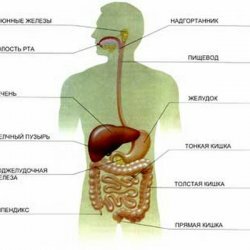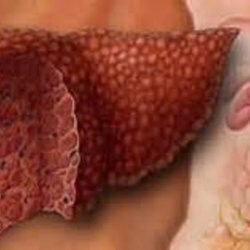Gastroesophageal reflux disease
 Gastroesophageal reflux disease ( GERD) is a digestive disease affecting the lower esophageal sphincter( NPC) - the muscles that connect the esophagus with the stomach. Many people, including pregnant women suffering from heartburn or acid in the stomach, are all caused by GERD.Doctors believe that some people suffer from GERD because of a condition called a hernia of the esophageal opening of the diaphragm. In most cases, you can get rid of heartburn with a diet and a different lifestyle, but some patients need drugs or surgery.
Gastroesophageal reflux disease ( GERD) is a digestive disease affecting the lower esophageal sphincter( NPC) - the muscles that connect the esophagus with the stomach. Many people, including pregnant women suffering from heartburn or acid in the stomach, are all caused by GERD.Doctors believe that some people suffer from GERD because of a condition called a hernia of the esophageal opening of the diaphragm. In most cases, you can get rid of heartburn with a diet and a different lifestyle, but some patients need drugs or surgery.
What is gastroesophageal reflux?
Gastroesophageal reflux is the return of the contents of the stomach back to the esophagus. In normal digestion, the NPC is opened to allow food to pass into the stomach and then close again to prevent the food and acidic stomach juice from escaping back into the esophagus. Reflux disease occurs when the NPS is weakened and allows the contents of the stomach to flow back into the esophagus.
Hernia of the esophagus of the diaphragm
Hernias of the esophagus of the diaphragm occur when the upper abdomen moves upward into the thorax through a small aperture in the diaphragm. The diaphragm divides the stomach from the chest. The aperture in the diaphragm acts as an additional sphincter around the lower part of the esophagus.
Coughing, vomiting, stress, or sudden physical exertion can lead to increased pressure in the abdominal cavity, resulting in a hernia of the esophageal opening of the diaphragm. Obesity and pregnancy also contribute to this condition. People aged 50 years and older have small hernia of the esophageal opening of the diaphragm. Although a hernia of the esophageal opening of the diaphragm can appear in people of all ages.
What factors contribute to GERD?
Some foods and beverages, including chocolate, peppermint, fried or fatty foods, coffee or alcohol, can lead to weakened NPS, reflux and heartburn. Studies show that smoking relaxes NPCs. Obesity and pregnancy can cause GERD.
What is heartburn?
Heartburn, also called "stomach acid," is the most common symptom of GERD.Usually people feel a burning pain that moves up to the neck and throat. Many describe the sensations: food comes back to the mouth, leaving acid or bitter taste.
Burning, pressure and pain from heartburn can last up to 2 hours, and intensify after eating. Many people get relief when they stand or take antacids, which purify acids in the esophagus.
Pain in heartburn can be mistaken for pain associated with heart disease, but there are differences. Exercise exacerbates the pain caused by heart disease, and the rest can ease the pain. Pain in heartburn is not related to physical activity.
Treatment of GERD
Doctors recommend changing the dietary way of life for people with GERD.Treatment is aimed at reducing the damage to the mucosa of the esophagus. It is recommended to avoid food and drink that can weaken the NPC.These products include chocolate, mint, fatty foods, coffee and alcoholic beverages. Foods and drinks that can irritate the damaged walls of the esophagus include: citrus fruits and juices, tomato foods and peppers.
Reducing portion sizes during meals helps control symptoms. Eating 2-3 hours before bedtime can reduce reflux, allowing acids in the stomach to decrease. In addition, overweight often worsens symptoms. Smoking weakens the NPS.Thus, quitting smoking is important when reducing symptoms of GERD.Lifting the head of the bed reduces heartburn, allowing you to minimize the severity of the contents of the stomach in the esophagus.
Antacids with regular intake can neutralize acids in the esophagus and stomach, thereby stopping heartburn. Many people believe that over-the-counter antacids provide temporary or partial relief. Antacids in combination with alginic acid help some people. These compounds in the form of foam, act as a barrier on the upper part of the stomach, they prevent the occurrence of heartburn.
Prolonged use of antacids leads to side effects, including diarrhea, changes in calcium metabolism, and the accumulation of magnesium in the body. Too much magnesium can lead to serious consequences for patients with kidney disease. For chronic reflux, the doctor may prescribe medications to reduce the acid in the stomach.
How to control heartburn?
- Avoid food and drink that presses on the NPS or irritates the walls of the esophagus. These include fried and fatty foods, mint, chocolate, alcohol, coffee, citrus fruits and juices, tomato juice.
- Lose weight if overweight.
- Quit smoking.
- Raise the head of the bed to 15 cm.
- Do not lie down and try not to bite heavily after 2-3 hours after eating.
- Drink medicines prescribed by your doctor.
What if my symptoms persist?
Endoscopy is an important procedure for people with chronic GERD.By placing a small lighted tube with a tiny video camera at the end( endoscope) in the esophagus, the doctor can see inflammation or irritation of the tissues lining the esophagus( esophagitis).If the results of endoscopy are abnormal or questionable, then a biopsy( removal of a small sample of tissue) from the mucosa of the esophagus can give an accurate diagnosis.
The Bernstein test( drops of soft acid are fed through a tube that is in the middle of the esophagus) is often performed as part of a complete assessment. This test attempts to confirm that the symptoms appear as a result of feeding the acid into the esophagus. Manometric examination of the esophagus is a measurement of pressure in the esophagus, sometimes it helps to determine the critically low pressure in the NPS, or deviations in the esophagus.
For patients in whom diagnosis is difficult, physicians can measure the level of acidity in the esophagus through pH testing.
Does the GERD require surgical intervention?
A small number of people with GERD may need surgery because of severe reflux and poor response to treatment. Fundoplication is a surgical procedure that increases pressure in the lower part of the esophagus. However, surgical intervention should not be considered until all other measures have been tried.
What are the complications associated with GERD?
Sometimes, GERD leads to serious complications. Esophagitis can occur as a result of too much stomach acid in the esophagus. Esophagitis can lead to bleeding or an ulcer. Some people develop a condition known as Barrett's esophagus. This is a serious damage to the esophageal mucosa. Doctors believe that this condition can be a harbinger of esophageal cancer.



